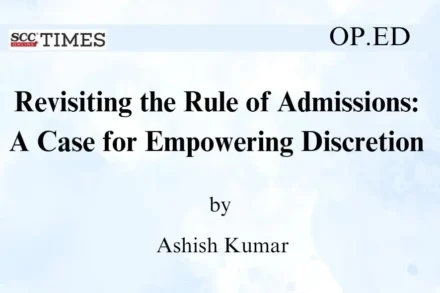
Criminal Procedure Code

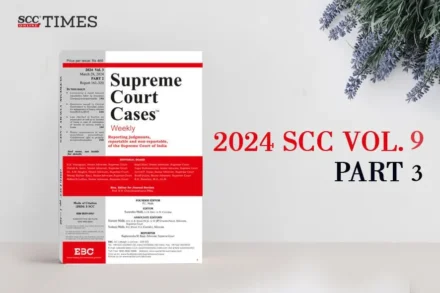
2024 SCC Vol. 9 Part 3
Arbitration Act, 1940 — S. 29 — Interest on interest or compound interest: Post award interest on interest awarded is not grantable
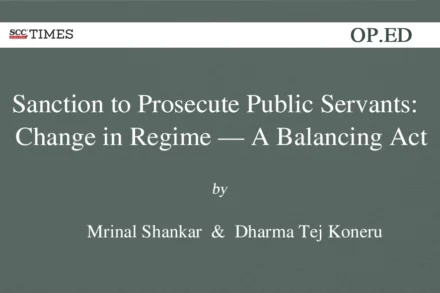
Sanction to Prosecute Public Servants: Change in Regime — A Balancing Act
by Mrinal Shankar† and Dharma Tej Koneru††
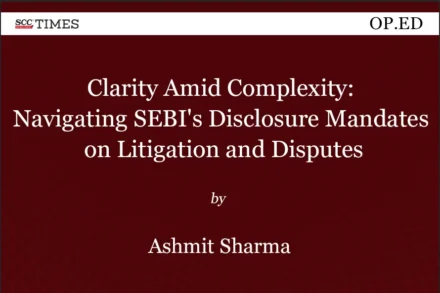
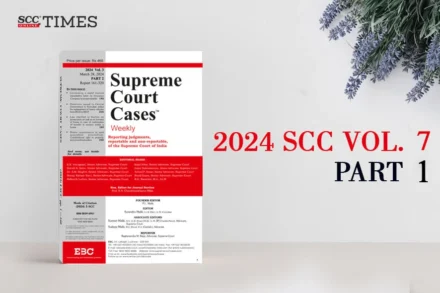
2024 SCC Vol. 7 Part 1
Arbitration and Conciliation Act, 1996 — S. 32(2)(c) and S. 25(c) — Power of Arbitral Tribunal under S. 32(c)
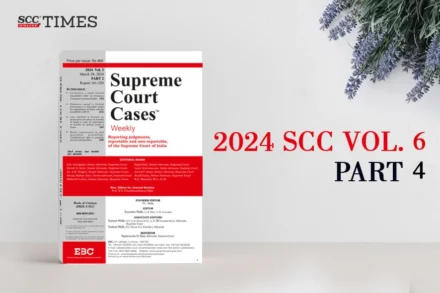
2024 SCC Vol. 6 Part 4
Arbitration and Conciliation Act, 1996 — Ss. 34 and 37 — Interference with award by Court: Law regarding limited jurisdiction of Court
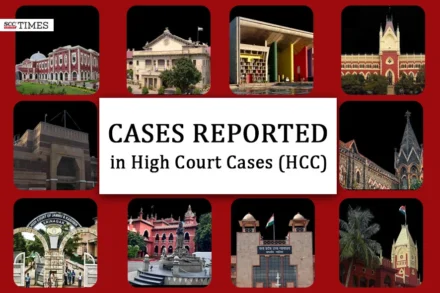
Cases Reported in HCC
(2023) 1 HCC (All) GST — Search and Seizure — Determination of Tax — Challenge against the order wherein tax of Rs
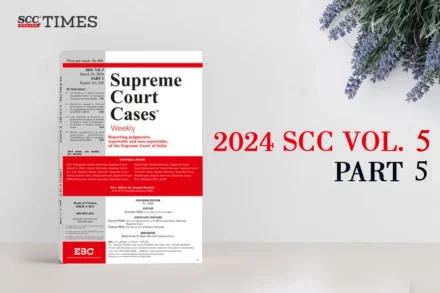
2024 SCC Vol. 5 Part 5
Admiralty (Jurisdiction and Settlement of Maritime Claims) Act, 2017 — S. 4(1)(f) — Suit for misdelivery of cargo and maritime claim by
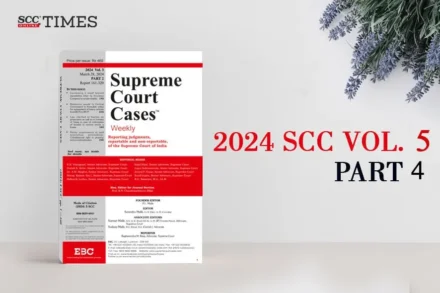
2024 SCC Vol. 5 Part 4
Constitution of India — Arts. 32, 21, 14 and 226 — Writ petition by the victim challenging grant of remission or premature
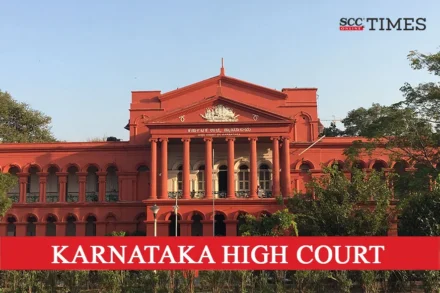
Paramour of an accused cannot be dragged into proceedings under Section 498A of IPC; Karnataka HC reiterates
The Court pointed out that a paramour of an accused cannot be dragged into proceedings under Section 498A of IPC as the said accused would not become a relative or a member of the family as is necessary under Section 498A of IPC.
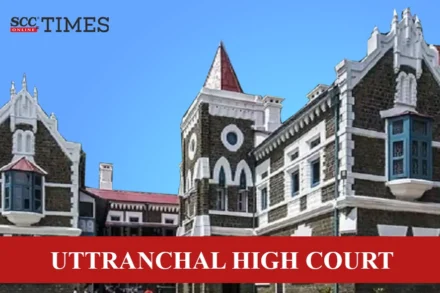
High Court does not function as a Court of Appeal or Revision while exercising jurisdiction u/s 482 of CrPC: Uttaranchal High Court
The Court opined that inherent jurisdiction under Section 482 of CrPC though wide should not be capriciously or arbitrarily exercised but should be exercised in appropriate cases to do real and substantial justice. Thus, quashing of charge sheet or setting aside summoning order on appreciation of evidence is not justified.
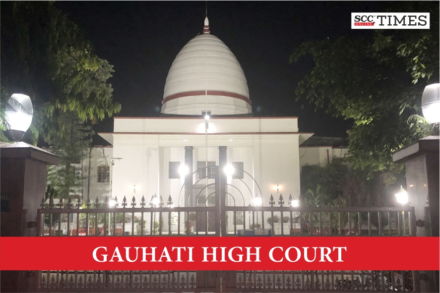
Confessional statement, not signed or proved by the Magistrate who recorded it, cannot be treated as true u/s 164 CrPC: Gauhati High Court
The Gauhati High Court noted that after completion of the investigation, the petitioner was not examined under Section 313 of the Criminal Procedure Code, 1973, to enable him to personally explain circumstances appearing in the evidence against him, nor was his statement recorded.

‘Will serve the purpose of speedy justice’; Bombay HC directs District Courts to mandatorily award interest on maintenance amount payable by husbands/fathers
The Court opined that the husbands/fathers are many times not depositing the arrears of maintenance for years together and they have no fear or burden to pay the interest on that amount of maintenance and this is a serious legal mischief.

Custody of accused without providing judgment copy deems violation of Statutory and Constitutional Rights: Delhi High Court
The Principal District and Sessions Judges of all the Districts Courts in Delhi are requested to sensitize the presiding judicial officers to pronounce their judgments on conviction only when they are ready for pronouncement and, in case where they are convicting the accused and taking the accused into custody, immediately supply a copy thereof, free of cost, to the accused for the accused to avail of the remedies available to them in accordance with law.
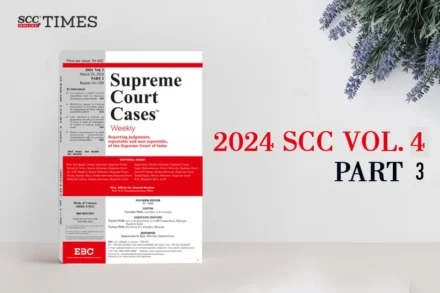
2024 SCC Vol. 4 Part 3
Appellate Jurisdiction under Section 37(2) of the Arbitration Act: Jurisprudence on the setting aside awards under Section 34 of the Arbitration Act
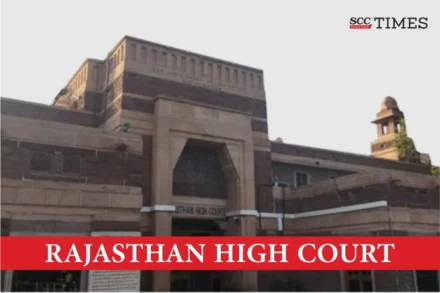
Cognizance taken by Magistrate and Additional Sessions Judge in parts is not legally permissible: Rajasthan High Court
“Criminal law serves the purpose of maintaining law and order by providing predictability. It protects individual rights …Criminal law deals with offences and helps to protect the society from falling into the state of anarchy.”
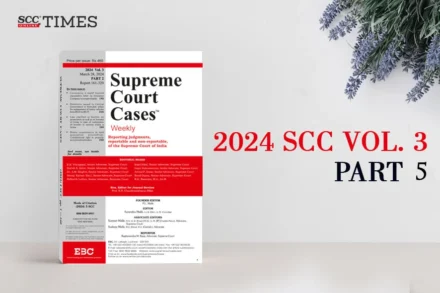
2024 SCC Vol. 3 Part 5
Civil Procedure Code, 1908 — Or. 6 R. 17 — Amendment of plaint: Principles summarized re when amendment of plaint is permissible.
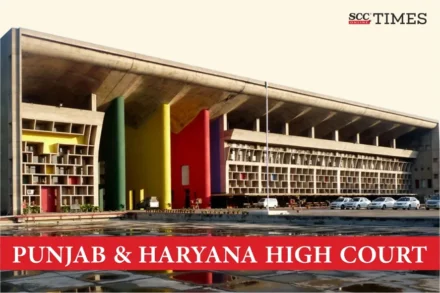
Courts will do well in not ordering concurrent running of sentences for serial offenders accused of heinous crimes: Punjab and Haryana High Court
“A sentencing policy which is unusually mild and sympathetic in its operation would have a disastrous effect on society and would do more harm than good to public confidence in the efficacy of law.”

Person cannot be said to be absconded or evaded the execution of warrant when he went to a distant place before issuance of warrant: Punjab and Haryana High Court
Petitioner asserts that his absence was neither intentional nor deliberate as prior to the registration of the FIR as well as complaint, he was not residing in India since having settled in UK in 1988.
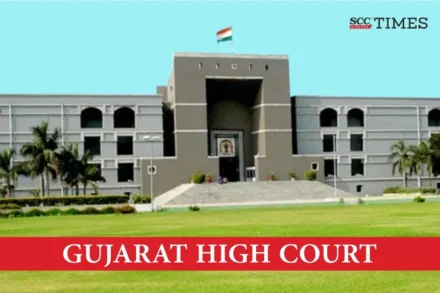
Prior sanction for prosecuting a public servant can be taken even at the time of conclusion of trial; Gujarat HC rejects bail of retired IAS officer
“In the recent times, there was an increase in socio economic offences in the country. These are the offences which are solely committed for personal gains. These crimes are affecting every part of the country’s economic structure and wrecking the people’s faith in the system.”

